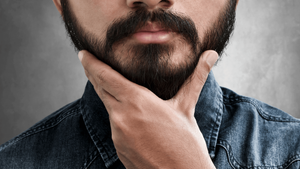Does Wearing Cap Cause Hair Loss?
Wearing a cap is fashionable for some, and it is an easy way to hide bald patches for others. But does wearing caps cause hair loss?
The answer is no. There is no conclusive research or scientific study that infers wearing caps causes hair loss.
Hair loss has multifactorial causes like genes, environmental factors, and hormonal changes that influence hair growth and lead to hair loss.
So, Do Caps Make ou Bald?
No. Although wearing a cap will make it more visible for you to see shredded hair, this does not mean that wearing a cap causes hair loss.
Another reason many believe wearing a cap leads to hair loss is it makes your hair appear flat. Consequently, it makes the hair volume seem low, making the baldness more visible and your hair loss evident.
So, the bald patch is not because of wearing a cap. It is only because wearing a cap makes the receding hairline and other signs of baldness more noticeable.
What Does Research Say?
Research studies do not directly emphasise that wearing a cap leads to hair loss. Although dermatologists suggest wearing a looser cap is a great way to maintain healthy hair.
Wearing a tight cap leads to more sweating which may irritate or inflame the hair follicles and decrease the blood flow to the hair follicles. Thus, resulting in stress on hair follicles and causing them to fall out.
The medical term for this is traction alopecia, which occurs when hair is pulled on regularly for a long time. It can be caused by wearing tight headgear, hard caps, or a similar style for a professional requirement. Still, there is no conclusive evidence to show the link between hair loss and wearing a cap to give a scientific answer to do caps cause hair loss.
If you are allergic to the fabric of the cap, it can cause an allergic reaction on the scalp, especially if you wear it tight or are sweating a lot. Whichever the cause, it could cause hair loss. Although this type of hair loss is usually temporary, it could become permanent over time.
In fact, a research study conducted on 92 pairs of twins to investigate how several environmental factors affected hair loss found that the twins who wore a cap experienced less hair loss than those who did not.
Moreover, many dermatologists in their research also said that wearing a cap may help reduce your risk of hair loss, as they protect the scalp from ultraviolet radiations that can affect hair growth.
Real Culprit Behind Hair Loss on the Scalp
Hair loss can be caused by many factors like stress, genes, hormones, or even certain medications and diseases.
Male pattern baldness, also known as androgenic alopecia, most men experience at some point in their lives. It is caused due to the shrinking of hair follicles due to hormonal changes. In such cases, the hormone dihydrotestosterone interferes with the hair growth cycle, shortens the growth phase of hairs, and causes male pattern baldness.
Some of the common combinations of factors leading to hair loss are:
1. Genes
Genetic history of hair loss plays a vital role in hair loss for either sex. Males with a family history of bald spots usually experience them first on the top of their heads.
2. Medications
Certain medications for diseases like heart diseases, high blood pressure, and gouty arthritis can influence hair growth. Also, cancer treatment radiotherapy and chemotherapy adversely affect hair growth.
3. Stress
Stress is one of the most common factors for hair loss, as it is related to several hair diseased conditions. Stress can trigger alopecia aerates, an autoimmune disease that causes thinning of the hair and bald patches. Moreover, stress can also lead to hair thinning with time, making it one of the culprits of hair loss.
4. Hormonal Changes
Hair thinning and hair-shedding can be caused due to changes in hormonal levels. It leads to thinning of hair as well as reduced hair growth.
5. Medical conditions
Scalp infections like ringworm infections, non-communicable diseases like hypertension, diabetes, and other medical conditions like thyroid disorder can affect hair growth leading to hair loss.
6. Hairstyles and Hair Treatments
Regular overuse of tight hair like tight braids, tight ponytails, etc., can lead to traction alopecia by continuous pressure on hair follicles. It leads to hair loss over time.
References
- Can Wearing a Hat Make You Go Bald? - https://health.clevelandclinic.org/can-wearing-a-hat-make-you-go-bald/
- James Gatherwright, May 2013; The contribution of endogenous and exogenous factors to male alopecia: a study of identical twins - https://pubmed.ncbi.nlm.nih.gov/23629119/














